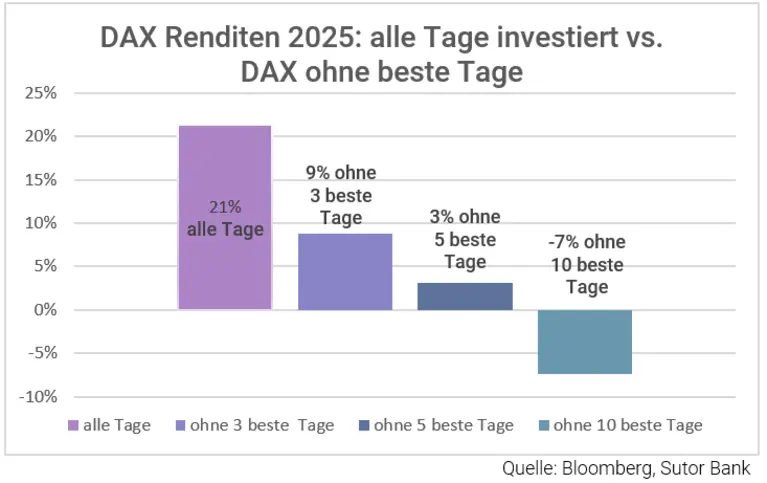In recent years, central banks have set the pace on the markets with their interest rate decisions. Above all, inflation as a result of multiple crises made it necessary for them to intervene. "The central banks' new strength is now calm," says Mathias Beil, Head of Private Banking at Hamburg-based Sutor Bank. "This is also due to the fact that a very fragile balance has been reached with interest rates - and the central banks don't want to make any fatal mistakes now." This is good news for investors.
Central banks always take center stage as havens of stability during crises. "They are a kind of final authority to which markets and politicians still submit to some extent," says Beil. "Traditionally, their decisions are rarely criticized, but accepted as the conscience of the economy as a whole." This has changed over the past three years with the sudden interest rate hikes to combat inflation.
In 2023, the central banks were said to be driven by the markets: no longer independent in their actions and on the verge of leading the world into a recession with interest rate hikes. Especially as interest rate hikes were only ever made in response to ever higher inflation data. "And it's true that historically, with one exception, such interest rate hikes have always led to recessions. Sometimes stronger, sometimes weaker, but it always led to a recession," says Beil.
This risk still exists today - and that is why the central banks are using a new instrument: calm. The ECB and Fed are currently taking a wait-and-see approach, leaving interest rates at a high level and watching to see whether the economy turns. "In addition, the announcements are probably also intended to let some air out of the stock market bubbles," explains Beil.
Central banks have the markets under control - not the other way around
This makes it clearer that the central banks are once again in control of the markets and not the other way around. After the Fed left interest rates unchanged at the highest level in 23 years on Wednesday (31.1.2024), Fed Chairman Powell at least refrained from emphasizing this time that the Fed is prepared to raise interest rates rather than lower them if in doubt. "That is an important signal in the direction of interest rate cuts," says Beil.
A signal that Powell relativized again with the announcement that he would only cut interest rates if inflation moved safely towards two percent. "So interest rate cuts yes, but not so quickly," says Beil. As a result, the Nasdaq technology stock exchange initially fell by two percent. "Quite a deliberate reaction," says Beil. "The central banks take some of the air out of the markets. If a recession does set in, the fall will not be quite so high."
"The central banks are playing their hand surprisingly confidently, are not allowing themselves to be driven and will keep interest rates up as long as the global economy does not suffer any damage and perhaps slips into a recession," says Beil. "This new calm is a powerful weapon and ensures that the central banks' ability to act increases." After all, where the powder was largely shot during the crises, new powder is accumulating with every month of calm. "The central banks are thus strengthening their role as the last resort - which bodes well for investors and the economy," says Beil.




![[Translate to English:] Deutsche Flagge vor dem Bundestag](/fileadmin/_processed_/6/8/csm_maheshkumar-painam-HF-lFqdOMF8-unsplash_fde0da4c98.webp)
